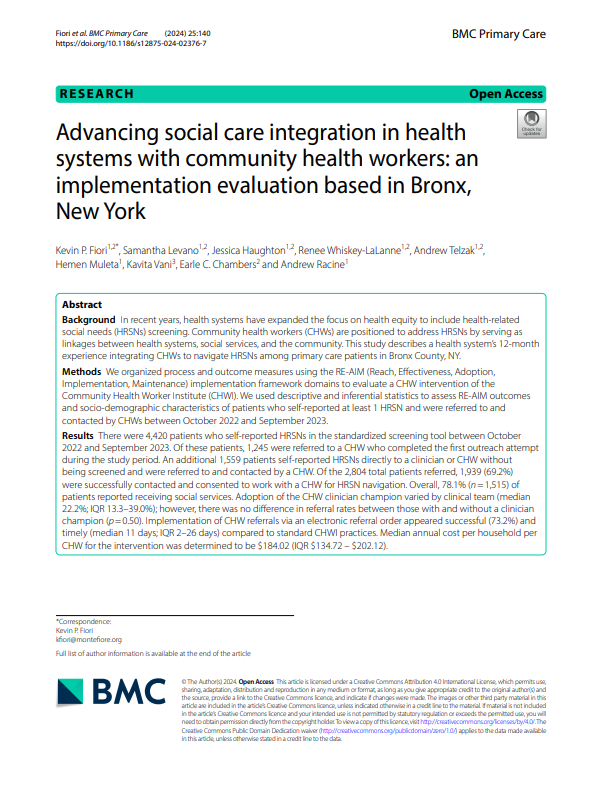Headline
A community health worker (CHW) initiative embedded in an urban health system led to a significant number of primary care patients receiving services to address their health-related social needs (HRSN).
Background
CHWs are increasingly being integrated into primary care teams and are uniquely positioned to support navigation of HRSN, such as housing and food insecurity. This study evaluated the implementation and impacts of a CHW program on primary care patients within a New York City health system.
Findings
Primary care patients involved in the study were referred to CHW services based on self-reported responses to an HRSN screening or through conversations with providers. During the one-year study period, 69% of the 2,800 patients who reported a HRSN were successfully connected with a CHW, and 78% of those patients received social services. The most prevalent needs were housing, food, and financial insecurities. CHWs completed over 12,300 encounters, mostly by phone, and engaged with patients for an average duration of 31 days. Of patients who received social services, 93% reported that their HRSN improved.
Policy/Program Takeaways
Health systems looking to improve patients’ connections to social care can learn from this health system that successfully deployed CHWs to address patients’ HRSN.

